History
Habitat for Humanity Uganda (HFHU) is affiliated with Habitat for Humanity International (HFHI) headquartered in Atlanta – Georgia (U.S.A) and is an ecumenical Christian ministry that is dedicated to eliminating poverty housing. HFHU functionally reports to HFHI’s Europe Middle East and Africa (EMEA) Area Office in Pretoria – South Africa. We empower people in the world’s poorest communities to overcome the chronic lack of decent, affordable housing. By 2025 Habitat for Humanity Uganda projects to serve over 10,000 vulnerable children and orphans. That will be a humble success in comparison with Uganda’s widening housing deficit estimated at 2.4 million units.
Overview of the Housing sector in Uganda
Housing is a basic human right, essential for the well-being of all mankind. The 1995 Constitution of the Republic of Uganda, under the General Social and Economic Objectives, guarantees to fulfill the fundamental rights of all Ugandans to social justice, economic development, enjoying rights and opportunities, and access to clean and safe water, health, and decent shelter amongst others. The African Charter on Human and People’s Rights (1986) recognizes the right to adequate housing and shelter as enshrined in the Universal Declaration of Human Rights In the same vain, the East African Community Treaty also recognizes the right to adequate housing. The Government of Uganda recognizes the strategic social and economic importance of housing in the national economy and particularly to the socio-economic transformation of the country as highlighted in Vision 2040. It is the Government’s policy to ensure that every family lives in a decent and affordable house that meets the necessary requirements of safety, security of tenure, health, privacy, and protection from weather adversities.
The overall housing situation in the country is characterized by inadequate housing in terms of quality and quantity both in rural and urban areas with a housing deficit estimated at 2.4 million housing units. An estimated 900,000 housing units are substandard and need replacement or upgrading. By 2022, Uganda’s population is projected to be about 48 million. The population growth is expected to require more than 3 million more housing units.

The Housing need in Uganda
It is estimated that Uganda has about 7.3 million households living in 6.2 million housing units with an average household size of 4.6 persons.
The national occupancy density is estimated at 1.1 households per housing unit, giving a total backlog of 710,000 housing units. There is also an estimated backlog of 900,000 housing units as a result of sub-standard houses and structures which were never meant for human habitation. Out of a total backlog of 1.6 million housing units, about 210,000 units are in urban areas while 1.395 million units are in rural areas. The annual need for new housing for the entire country is estimated at 200,000(two hundred housing units) of which 135,000 are in rural and 65,000 in urban areas resulting from the population growth rate of 3.5% and urbanization rate of 20% (2021).
The estimated construction rate of reasonably good houses is estimated at 40,000 housing units in rural areas and 20,000 in urban areas. This creates a deficit of 140,000 houses nationally of which 95,000 are in rural areas and 45,000 in urban areas. This shortage does not include the backlog of 1,600,000 housing units carried forward.
By 2025, Uganda’s population is projected to be about 52 million people. With the current household size of five (5) persons, the housing need resulting from population growth will be about four million housing units.

How Habitat is addressing the need in Uganda
Our experience, expertise, and range of solutions make us a leader in the global housing sector. But we alone can’t solve the ‘silent emergency’, in which so many millions still suffer from poor housing conditions and deprivation. We work in partnership with beneficiaries, volunteers, public and private sector partners, civil society, and governments to bring about change to build strong and stable communities.
At Habitat for Humanity Uganda, we strive to address the housing deficit through 4 tailored programming approaches; Vulnerable Group Housing; Provision of Housing Finance; Market Based Technical Assistance; and the Urbanization Program that gives support to Local Governments. Please join us to do more. Together we will build houses for vulnerable groups. Together we will make appropriate Housing Finance options available. Together we will make Uganda a place where everyone has a decent place to live.
Here are some examples of Habitat projects in Uganda:
Through the OVG Program, HFHU seeks to reach out to child-headed households or families taking care of children orphaned or rendered vulnerable by war or HIV/AIDS. For each of these families, HFHU’s Intervention includes the provision of shelter complete with a 3,000-liter rainwater harvesting tank, Ventilated Improved Pit-latrine (VIP), and a shower stall. The families are encouraged to contribute sweat equity during their home construction like fetching water while HFHU provides other (manufactured) home construction materials including skilled labor in form of a grant. HFHU implements OVG program activities both directly and through implementing partners.
Families are also trained in the knowledge of HIV/AIDS, sexual and reproductive health, succession planning, inheritance rights, sanitation, and hygiene, and malaria prevention.
Recognizing the connection between housing and livelihood security, we support youth in these households to develop vocational skills relevant to their local market such as tailoring, carpentry, and masonry, welding, hairdressing, motor vehicle mechanics, motorcycle mechanics among others. Upon completion, they are given start-up kits to take forward their skills and become the income earners and support base for their families.


Habitat For Humanity Uganda

